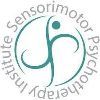ADHD and conversations
Convos - interrupted

Adults who have recently been diagnosed with/ or suspect that they may have ADHD experience a wide array of symptoms, from difficulties honoring deadlines, staying organized, following through on a project or finding motivation. A part of ADHD that is not often mentioned is the difficulties individuals might have with conversations, be it in a group or with one person.
ADHD in social situations
In the case of ADHD, the person is usually well aware of what is happening around them. They understand the social cues, and they can read body language well. However the struggle becomes apparent when a conversation takes place, between two or more. If you imagine a conversation being a bit like a tennis match, where, overall, equivalent amount of time is shared between the two (or more) partners, with adequate pauses and silently agreed upon reactions, the person with ADHD will be the person running to the net….or to the opponent's side of the court. The person with ADHD will be interrupting the flow of the conversation with ill timed thoughts (in the middle of someone else’s sentence) or with silences, as they lose track of the flow and get lost in their own mind. Some may side track to a completely different topic. Some may converse on several tracks, interweaving themes and getting lost in between.
The interruptions are common for people with ADHD, and there are several reasons for it
- Dopamine production. People with ADHD historically produce less Dopamine than the norm, leading them to seek more. Dopamine is the “pleasure hormone” of the brain. If the person with ADHD is less interested in the topic, having a less pleasurable experience, their brain will start looking for other ways to entertain itself and produce more dopamine. The person might interrupt the conversation to reroute it to a more entertaining space.
- Working memory. People with ADHD tend to have poor working memory, the memory that is used daily to remember where, for example, one placed their keys, or what needs to be done next, or being able to place a thought in a temporary hold to get back to it later. In this case, the person with ADHD will have a thought in the middle of conversation that they know might disappear if they don’t tend to it. The fear of losing the thought will cause them to express it, causing disruption.
- Impulsivity. People with ADHD tend to have poor impulse control, immediately reacting to a perceived want or need. This is due to low dopamine production and to having poor working memory. That impulsivity, when not managed, will show up in terms of interruption of the flow of conversation with new thoughts, checking one’s phone, googling data in the middle of a sentence, etc.
The shame of ADHD and interruptions
I have often heard clients recount their experiences in groups, feeling that they took too much space or that they were perceived as rude for interrupting. Those clients feel guilt and sometimes shame for their behavior, believing that there is something wrong with them, and feeling that they are “bad”, “selfish”, or “antisocial”. This awareness of how they showed up, and not being able to do anything about it, causes them to feel a great amount of pain.
What to do about it
If you believe that you have ADHD, or if you have been diagnosed with ADHD, here are several tools to help you manage interruptions :
- Warn your conversation partner. ADHD is not an excuse, it is an explanation. Warning your partner that you may interrupt, and letting them know that it’s ok to be called out, can help you develop a moment to moment awareness and give you a chance to adjust their behavior.
- Have a note book with you (or a phone with a note taking app). If an important thought comes up, you can warn your partner that you need to pause for a second to write something down. That way you do not disrupt the flow with irrelevant information
- Remove distractions : put your phone on “do not disturb”
- Start noticing when you interrupt and stop talking. As soon as you notice, stop yourself and quickly apologize with a couple of words. When you do that, you train your brain to be more mindful and to go back to the conversation.
- Understand that it takes time, patience and a lot of mishaps. When you go home, start thinking about what others shared, instead of what you did or didn’t do right. You will always have an opportunity to try again.
The content of this blog is based on my personal and clinical experience. It is not a diagnostic tool. If you suspect you might have ADHD, please seek assessment by a qualified professional. For more information about who i am, check out the
about me page. For more info about what I do, check out the
services page. And contact me
here









